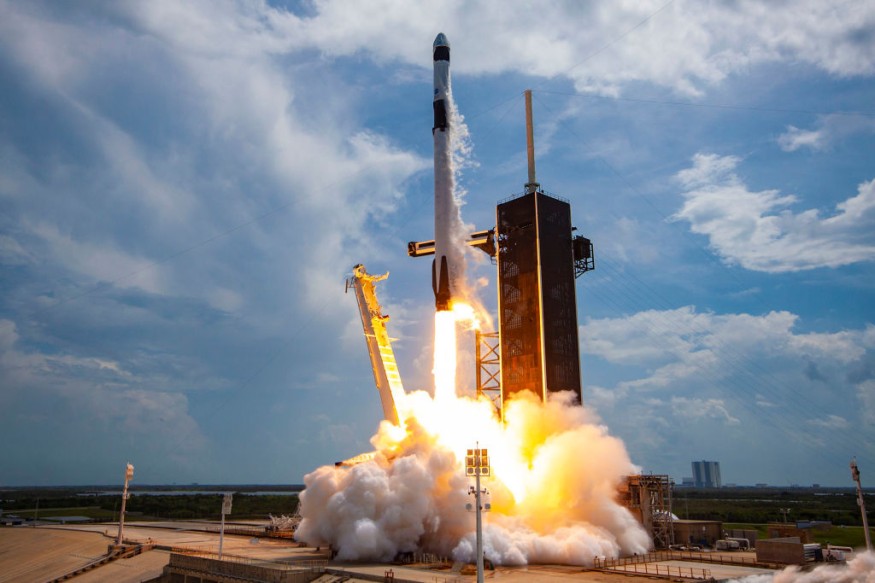For the first time in 20 years, a Russian cosmonaut joined two NASA crewmates and a Japanese space veteran in a SpaceX Crew Dragon capsule on Wednesday in a mission to the International Space Station.
A Falcon 9 rocket carried the only active-duty female cosmonaut from Russia, Anna Kikina, commander Nicole Mann of Crew 5 Dragon, Josh Cassada, pilot, and astronaut Koichi Wakata of Japan.
ABC News said the team left NASA's Kennedy Space Center at 12:00 pm EST on Wednesday and is scheduled to reach the space station on Thursday, 29 hours later.
Because of Hurricane Ian's catastrophic route across Florida last week, The Verge said the launch was postponed by a few days.
SpaceX Falcon 9 Brings Astronauts to Space
With 1.7 million pounds of power, the Falcon 9 launched into the sky and arced away to the northeast, leaving behind a magnificent jet of flame from its nine first-stage engines. As it dropped weight and used propellants, it continued to accelerate steadily.
CBS News said the upper stage of the Falcon 9 was scheduled to deliver the Crew Dragon spacecraft into low-Earth orbit nine minutes after releasing its first stage for retrieval on a landing barge, beginning a 29-hour rendezvous with the space station.
On Wednesday, the 178th Falcon 9 launch overall, the 44th this year, and the eighth crewed flight of a SpaceX Crew Dragon capsule.
According to The Verge, the astronauts will conduct research on the ISS, such as investigations into the potential for printing human organs in space and lunar fuel systems.

What Makes This Flight Special
CNN said it is not unusual for SpaceX Crew Dragon to carry NASA astronauts to the space station. After NASA ended its Space Shuttle Program in 2011, the space agency worked with SpaceX for years to transition the duty of transporting people to and from the space station.
SpaceX has allowed astronaut launches to resume from US soil, setting the groundwork for many historical firsts. For instance, NASA astronaut Jessica Watkins, the first Black woman to ever join the ISS crew, flew on the Crew-4 Dragon mission.
Mann, a recognized Wailacki tribal member of the Round Valley Reservation, made history by being the first Native American woman to enter orbit on this voyage.
As commander, Mann will ensure the spacecraft stays on course from launch until it docks with the ISS and once more when it returns to Earth with the four members of Crew-5 the following year. Although a few women held that post during the Space Shuttle Program, a woman has never been the mission commander on a SpaceX flight.
When US-Russian relations were at a fever pitch over the Ukraine crisis, Kikina, a Roscosmos cosmonaut, became the first Russian to ever launch on a SpaceX spacecraft.
NASA officials have reaffirmed time and time again that their collaborative activities with Russia on the International Space Station, where they are both the major operators, will stay apart from the conflict. Only a few weeks have passed since NASA's Dr. Frank Rubio traveled to the International Space Station on a Roscosmos Soyuz spacecraft.
Mann and NASA astronaut Josh Cassada, who both hail from White Bear Lake, Minnesota, joined the agency in 2013. Mann is one of Cassada's "closest friends on the planet."
Cassada and Kikina also make their first trips to space on this mission, similar to Mann.
This journey will be veteran astronaut Wakata's seventh space mission; he has previously traveled on the NASA space shuttle and the Russian Soyuz spacecraft.
Check out more news and information on Space in Science Times.
© 2026 ScienceTimes.com All rights reserved. Do not reproduce without permission. The window to the world of Science Times.











